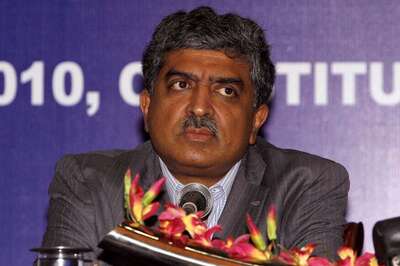
views
New Delhi: Insurance experts claim that more than 50 to 60 per cent of the annual insurance business gets executed during the last quarter of the financial year.
Whereas, the post offices all over the country become much busier during the last quarter due to maximum selling of NSC (National Saving Certificates) during that period.
It is really not surprising, because each one of us think about our tax commitments only at the end and in a rush to complete the commitment end up with absolutely unnecessary commitments for the rest of our life.
We know of innumerable people who had opted for NSC or unwanted insurance plans for fear of paying tax. In fact, one of the major reasons why insurance policies lapse is because policyholders have not applied their mind at the time of opting for their policies.
They have done it to complete the investments within the stipulated time limit. And now they have actually lost more than thrice of what they have saved as tax.
Just think about it – at the beginning of the financial year itself we all know generally what is going to be our approximate income during that year.
Even if we do not know what is going to be the actual income, the savings required is very clear – whatever is your income going to be, the maximum you can save under Sec 80C will be only Rs 1 lakh per year.
Hence it will not be difficult for any one to plan his tax related savings in the beginning of the year and execute during the rest of the year, at their convenience, without any cash-flow worries.
Why you shouldn’t wait till the eleventh hour
You will not take an informed decision
If you wait till the last minute, you will end up buying something that is available immediately rather than something you need.
Now that government allows unlimited options within the various tax saving instruments, everyone can work out all their needs and opt for an instrument that suits their needs.
You will compromise on the quality of instruments
Even when an investor decides the nature of investments, he should have sufficient time to analyze and opt for the best options.
For example, when one decides either insurance or ELSS (equity linked saving scheme), among those options also he can choose the service provider and the plan that suits him rather than the one, which will accept him in the last minute.
Your cash flows will go haywire
An advance and timely decision can work as a good cash flow management tool.
In case if someone decides that he will use the entire Rs 1 lakh savings option and decides at the beginning of the year, he will have a smoother cash flow.
Instead of investing on one day, the same can be spread over 10 to 12 months and the commitment can be watered down.
Your investments will be bunched up
Whenever an insurance plan is opted for as a tax saving instrument with an annual premium outlay, the outlay occurs at the same period every year.
Thus, if one opts for a plan in March, every year at the same time it will repeat and it will be very difficult at that period because of bunching of all commitments.
Now that the rupee cost averaging technique is so popular, simply put the SIP (systematic investment plan) system in mutual funds.
It also helps an investor to save for tax using the SIP model for ELSS. This in turn, brings down the investment risk associated with equity.
The author, B Srinivasan, is a Certified Financial Planner.




















Comments
0 comment